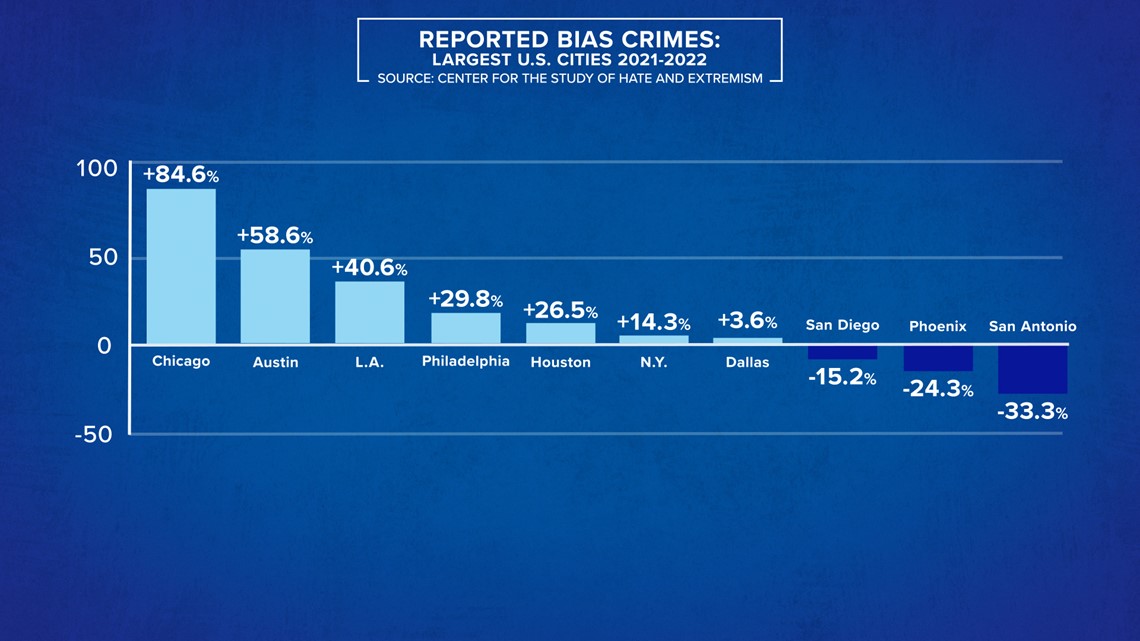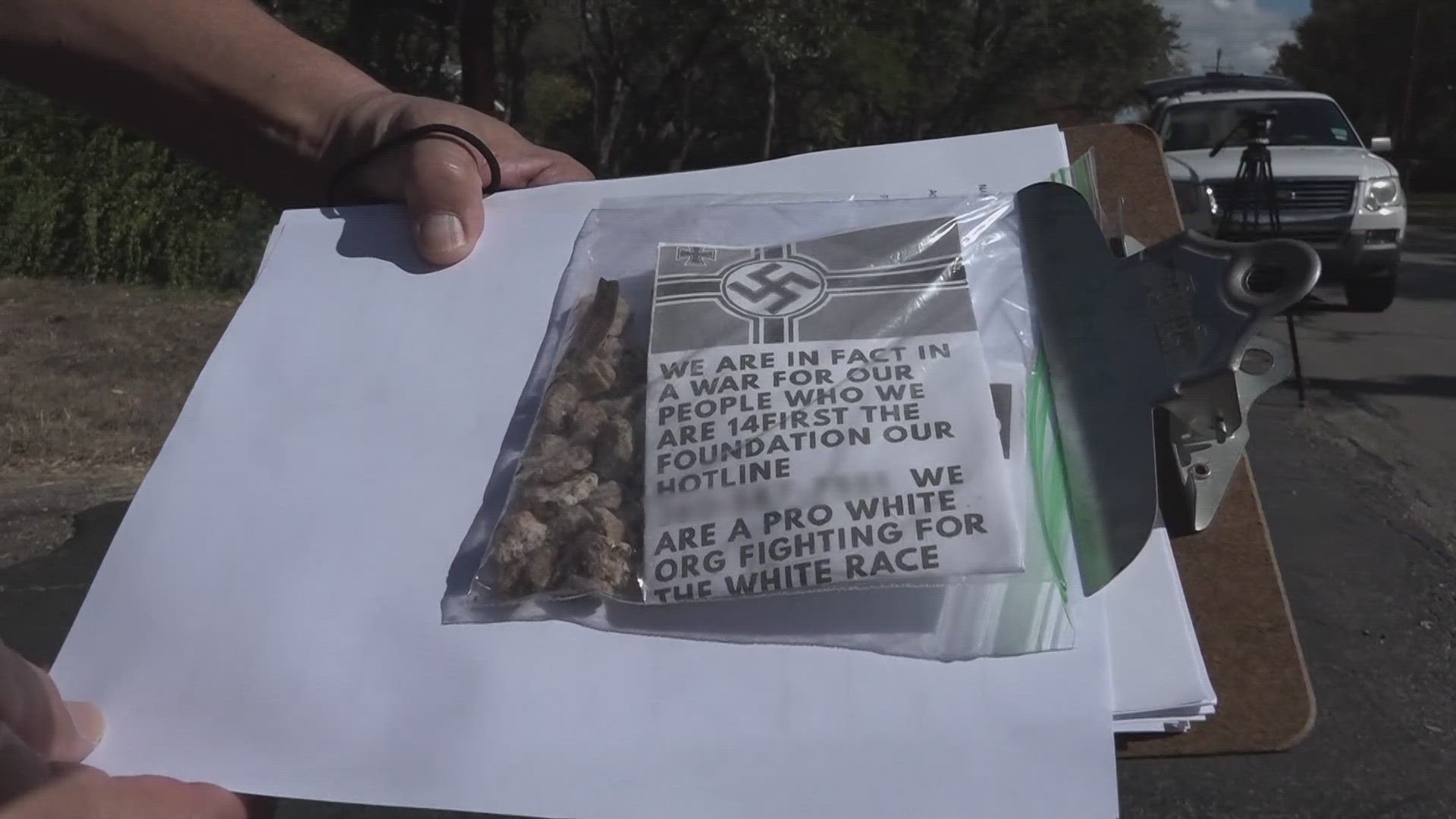SAN ANTONIO — New data reveals hate crimes in Texas hit an all-time high last year.
San Antonio's, however, numbers show something different. The Alamo City is defying a trend among the most populous cities in the country.
While most reported higher numbers of hate crimes last year, San Antonio reported a 33% drop in such incidents. That represents the biggest dip in hate crime numbers among the 10 largest U.S. cities.
In the wake of the COVID-19 pandemic, San Antonio leaders approved a resolution combatting hate speech. This followed reports of nationwide hateful rhetoric against the Asian community, and a vandalism involving racist graffiti in northwest San Antonio.
This summer, the City of San Antonio teamed up with Alamo Colleges to launch Compassionate USA. It's a free online course about the Golden Rule: Treat others how you wish to be treated. It's a move in line with the city's 2017 resolution proclaiming San Antonio a Compassionate City.
Brian Levin, professor and director emeritus of the Center for the Study of Hate and Extremism at Cal State University San Bernardino, will soon publish a report including hate crime statistics from the Department of Public Safety.
Levin was involved in writing the first federal training on hate crimes. He's also a commissioner on the California Commission on the State of Hate.
"Sometimes it's luck, where a catalytic event has faded a bit like a terrorist attack or an election," he said when asked about what contributes to a significant dip in hate crime numbers.
Using statistics from the Department of Public Safety, Levin found the top 10 cities hit a hate crime record for the second year in a row. He learned just three of the nation's 10 largest cities reported lower hate crime numbers last year: San Antonio, Phoenix and San Diego.


"Anti-Black was the No. 1 hate crime type in San Antonio," Levin explained.
That's similar to other big Texas cities, he explained.
"After anti-Black came anti-Latino and then anti-LGBTQ mixed, then anti-lesbian and anti-transgender. So three of your top five were related to sexual orientation," said Levin. "However, in Austin and Dallas, they were more along anti-gay hate crime [as the top reported incident]."
Even though the Alamo City's 42 hate crimes last year is lower than 2021's total, Levin says it's still the third-highest number we've reported within the last 20 years. San Antonio hit a two-decade high in 2021.
The real test, Levin believes, will be 2024.
"(In) election seasons, we see significant spikes every election year since national record keeping began back in 91," he explained. "This might be the eye of the storm that we're in now, but we're hoping that [downward trends] continue, but not likely."
A big area of improvement, experts say, would be how we prosecute hate crimes in Texas. We don't do it enough.
Out of the hundreds of these cases in recent years, only about three dozen were prosecuted.
"We're talking about maybe three dozen or so prosecutions out of hundreds and hundreds and hundreds of hate crimes that we're seeing in just recent years in the Lone Star State," Levin explained. "We have more hate crimes prosecuted in California in one year than Texas has had over the last 20."
Right now, the Center for the Study of Hate and Extremism's data is the only comparative national data available on this topic.
The FBI will soon release its own findings.
>MORE LOCAL NEWS:
>TRENDING ON KENS 5 YOUTUBE:

